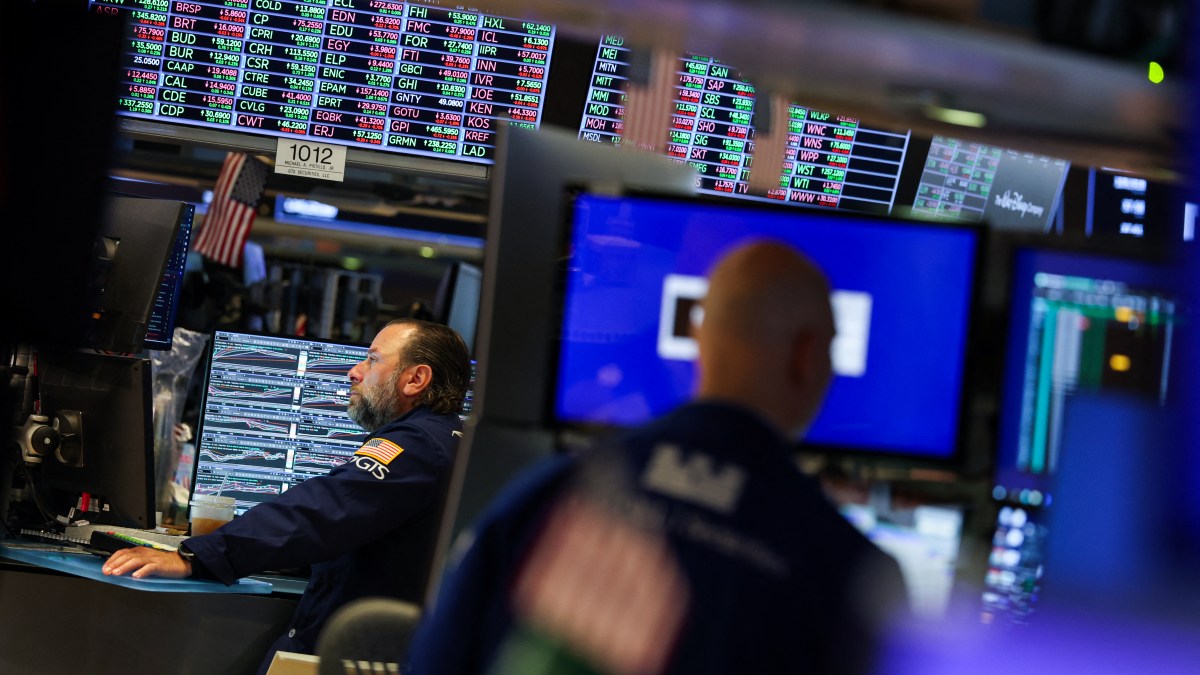Investors are becoming “complacent” about the risks of a financial crisis arising from ballooning government debt and asset price bubbles in the stock market, the International Monetary Fund has warned.
In its biannual assessment of financial stability risks, the IMF warned of “increasing vulnerabilities” across the financial system this year. It said traders were at risk of ignoring the threats from stretched government balance sheets and the fiscal and inflationary impact of tariffs, as well as risks associated with the so-called shadow banking sector.
“Markets appear complacent as the ground shifts,” the IMF said. “Despite trade tensions, geopolitical uncertainties and rising concerns about sovereign indebtedness, asset prices have returned to stretched valuations and financial conditions have broadly eased. These vulnerabilities reinforce each other, keeping global financial stability risks elevated.”
Measures of market volatility and financial conditions fell to yearly lows in September as US stock markets hit record highs on the back of optimism about mammoth AI-driven investments among “hyperscaler” tech firms. But there have been signs of fragility, as US stocks suffered their worst trading day since April last Friday after Donald Trump threatened to hit China with a blanket 100 per cent tariff.
The bankruptcy last month of First Brands, a US midwestern auto parts supplier, has also raised alarm about the private credit market, with the company’s lenders scrambling to find $2 billion of funds they claim have been lost.
According to the IMF’s modelling, the valuations on risky assets like equities have “become stretched” in recent months. It said: “An abrupt correction of asset prices could be exacerbated by these unusual asset correlations and lead to an unwinding of leverage and straining financial markets.”
The Washington-based fund’s global financial stability report stated: “The apparent calm masks a degree of complacency. Markets seem to have downplayed the potential effects of tariffs on growth and inflation.”
• AI bubble risks global market sell-off, Bank of England warns
The IMF has also sounded the alarm over a potential asset bubble in AI-related stocks, warning that a crash could be on the scale of the dotcom bubble at the start of the century.
Fund managers now think an AI bubble is the biggest risk facing markets, according to a survey from Bank of America which took place before the recent escalation in trade tensions between the US and China.
The IMF said: “Elevated valuations in tech and AI-linked sectors have been fuelled by expectations of transformative productivity gains. If these gains fail to materialise, the resulting earnings disappointment could lead to a reassessment of the sustainability of AI-driven valuations and a drop in tech stock prices, with systemic implications.
“A potential bust of the AI boom could rival the dotcom crash of 2000–01 in severity, especially considering the dominance of a few tech firms in market indices and involvement of less-regulated private credit loans funding much of the industry’s expansion.”
• IMF bows to Trump on trade surpluses, but is China listening?
In the bond markets, long-dated sovereign debt in the UK, the US and Europe has stabilised this month after a sharp sell-off in September over worries about rising debt and deficits.
The IMF said bond investors should remain “attentive to potential risks to inflation, especially where inflation is still above target, and preserve central bank operational independence” — a veiled reference to the US, where tariffs are expected to push up inflation but the central bank is under pressure to loosen monetary policy.

